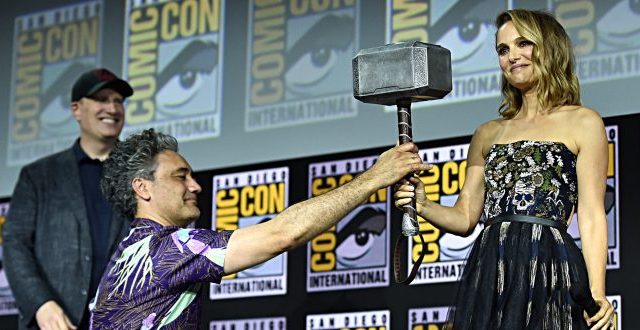I tell this story a lot. I could probably pin down the exact day it happened, if I asked my mother—certainly I’d be certain of the year, which I am not currently. It was probably 1981, though it might have been 1982. Either way, we were in the process of moving into the house in which I grew up. I was too young to be much help—four or five. I was sitting on my bed in my brand-new bedroom, reading Electric Company magazine. Specifically my favourite part of it—the Spider-Man comic. That is my first superhero memory, and I was already a fan.
I know, I know; that’s longer than a lot of my readers have been alive. I get it. And that’s my point. I was a superhero fan already, and it was before anyone told me that superheroes were just for boys. A lot of my friends have pop culture interests that they’re not “supposed” to because of their gender, ethnicity, sexual orientation, or what have you. Age, certainly; I’m not sure a single friend of mine with a pop culture passion hasn’t been told that whatever-it-is is “just for kids.” But I feel half of that is just an attempt on the other person’s part to feel superior because they’re supposedly too mature to play with LEGO.
The others are more pernicious yet easier to fix. And the answer looks a lot like what we’re doing already—you force diversity. On the creative teams as well, you understand; when upper middle class cis-het white dudes give us their takes on minority issues, class issues, gender issues, they ring false most of the time. (There are exceptions, of course; Stephen King may be fabulously wealthy now, but he can say quite a lot on the issues of poverty. He just needs, I don’t know, an ethnicity editor every time he tries to write about people who aren’t white dudes.) And having women and minorities behind the scenes makes it more likely that the stories will be told.
Why? Because our stories are normal. Right now, the pop culture default is cis-het white dude. (I am Californian enough to use “dude” both as a gender-neutral term that means literally everything and also to use it as a designation for a specific sort of man.) But women make up slightly over half the population of the US, which is my main pop culture reference point, and movies by and about women are far, far less common than that. If movies reflected the US, we’d see roughly a third of movies about people who were poor or “near-poor.” More than half would be about women. One in five would be about a mentally ill person. Nearly twenty percent of people in movies would be Hispanic.
By not telling those stories, we allow a certain kind of white dude to think that their experience is the default, because it’s all they see. And that shapes a lot more than pop culture. It’s a lot easier to think of immigrants as scary if you never tell stories about the some fifteen percent of the US population that is foreign-born. It’s a lot harder to ignore intersectionalism if you just watched a movie about a Korean-American lesbian couple. We as a species are influenced by our stories. We always have been. It’s one of the damaging aspects of all those movies where White Dude Solves Racism; it lets people think that racism gets solved. Has been solved.
Besides, everyone’s always looking for a fresh take on things, right? Something to disguise the fact that they’re telling the same story as everyone else? No, “let’s just swap genders!” is not enough to make the story good; I can give plenty of examples where swapping genders or ethnicities was a terrible mistake. But up until quite recently, the easiest thing DC could have done to overshadow Marvel was right there in their own back catalog—why cast Ryan Reynolds as the Green Lantern when it would’ve been trivially easy to cast, say, Idris Elba? Run an old-fashioned casting call for actors to play Jaime Reyes, then cast, like, Danny Trejo and so forth in his family.
Yeah, there are comic book fans who get whiny about it. So what? The ones who do that are the ones we need to change their attitudes in the first place, because for too long, they’ve been allowed to feel that the world revolves around them. It doesn’t. Stop letting them think it does.
The world doesn’t revolve around me, either, but it sure would go smoother for me if you’d consider supporting my Patreon or Ko-fi!

